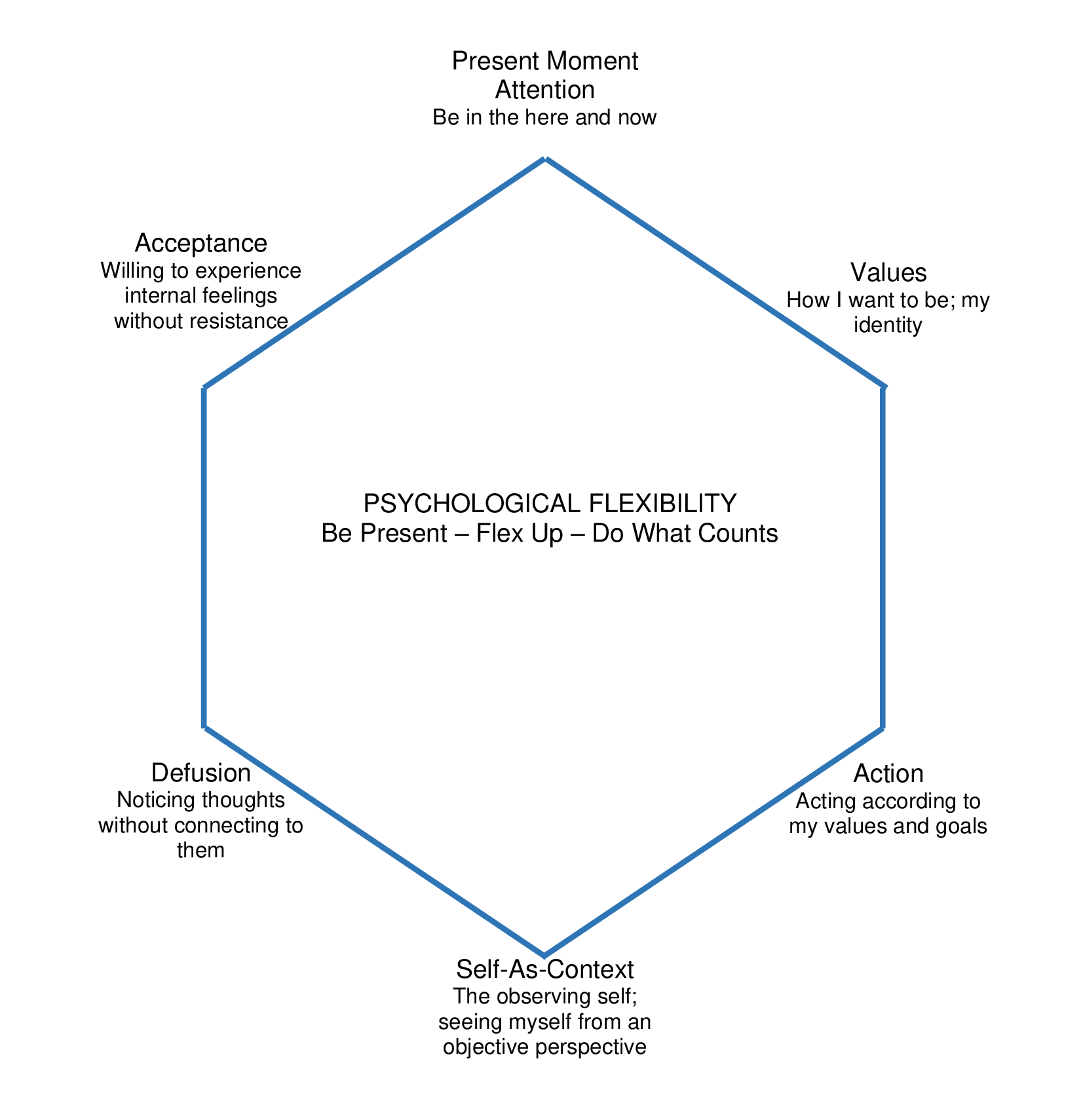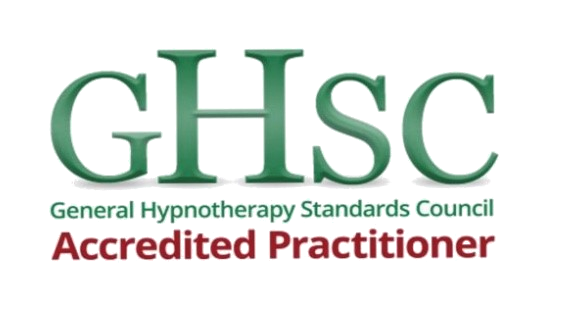Acceptance and Commitment Therapy in London, UK–wide and Online by Video Link
We provide Acceptance and Commitment Therapy (ACT) from various locations UK-wide and online via video link. Our therapists have received advanced training in the ACT model and can deliver this both as a standalone approach, or as part of an integrated CBT therapy plan.
If you want to find out more about our approach to Acceptance and Commitment Therapy, or if you want to book an appointment with one of our ACT specialists, please email info@thinkcbt.com or call 01732 808626. All enquiries are treated with discretion, professionalism and confidentiality.
What is Acceptance and Commitment Therapy?

Acceptance and Commitment Therapy (ACT) is a highly innovative and creative form of CBT, designed to normalise and alleviate emotional distress by improving cognitive, behavioural and emotional flexibility. ACT is one of the modern “Third-Wave” forms of CBT, which also includes DBT, CFT and MBCT.
Each of these third-wave CBT approaches have been rigorously tested through numerous research trials over the last 30 years and have been found to be highly effective across a wide range of anxiety and depression related problems.
Unlike many other psychological service providers, most of our Cognitive Behavioural Therapists at Think CBT are also trained in ACT, DBT, CFT and Mindfulness. This means that we can provide leading edge approaches in the treatment of problems including GAD, OCD, panic disorder, social anxiety, health anxiety, trauma, eating disorders, sleep problems and depression.
What is the Difference Between ACT and Mainstream CBT?
If you want to understand more about the key differences between Acceptance and Commitment Therapy (ACT) and mainstream Cognitive Behavioural Therapy (CBT), you can click on the read more button for a full explanation.
{slider Read more|closed|blue}
Whilst Acceptance and Commitment Therapy is classified as a “third wave” form of CBT, there are a number of fundamental differences in the way distressing feelings, thoughts and behaviours are approached between CBT and ACT.
Cognitive Behavioural Therapy: In mainstream CBT, unwanted or distressing emotions are altered by identifying and changing negative thinking and behavioural patterns.
Changes to cognitive patterns have been shown to produce structural and biochemical changes in the brain itself. Just like taking regular exercise, altering the way we think causes physical changes in the brain through neuroplasticity. In other words, we can change how we feel and act, by changing how we think.
Similarly, numerous research studies over the last century have demonstrated that altering established behavioural patterns can change mood states and levels of motivation through Classical and Operant conditioning. Put simply, we can also change how we feel by changing how we act.
Research has shown CBT to be effective, as it combines both the cognitive and behavioural models to produce a highly powerful psychological change process. In CBT, the emphasis is primarily on catching, checking and changing our thoughts and behaviours, to alter how we feel and respond in different situations.
Acceptance and commitment Therapy: In ACT we take a different approach to mainstream CBT. Whilst the underlying theory is based on a complex psychological model known as Functional Contextualism, the basic principles are that human suffering is maintained by our tendency to subjectively evaluate and attempt to avoid uncomfortable thoughts and feelings.
Distress is amplified when we get hooked by, tangled up in and avoidant of our own uncomfortable thoughts, feelings and sensations.
It is this attempt to out-think our own negative thoughts and to resist or avoid uncomfortable feelings, that paradoxically increases our overall level of distress. This creates a snowball effect in which we can feel anxious about our anxiety, depressed about feeling anxious about our anxiety, angry about our depression about our anxiety about our anxiety and so on...
As a consequence, we attempt further patterns of resistance and avoidance; we try to stop or move away from our discomfort. It is this attempt to move away from the uncomfortable symptoms, that causes two key problems.
Firstly, attempting to resist or move away from discomfort strengthens the underlying cause of the problem itself. Secondly, moving away from the discomfort also takes us further away from our values and goals in life.
So, for example, somebody suffering from social anxiety will often act to avoid situations that trigger emotional embarrassment or negative self-evaluation. This resistance to feelings of embarrassment and avoidance of social situations, perpetuates the underlying problem and usually moves the individual further away from living a meaningful and fulfilling life.
ACT is therefore primarily concerned with opening up to and normalising distressing thoughts and feelings, rather than trying to challenge and change the thoughts and feelings themselves.
ACT is focused on improving psychological flexibility in the service of living a rich, meaningful and fulfilling life. This shifts the focus from attempting to move “away from” what we don’t want, to moving “towards” what we do want and value in life.
In summary, mainstream CBT is primarily focused on catching, checking and changing negative thinking and behavioural patterns to promote good psychological health, whereas ACT is primarily focused on improving psychological flexibility by noticing, naming and normalising painful or distressing feelings.
{/sliders}
How ACT is Integrated into CBT
Whilst some psychological service providers compartmentalise and practise from either a CBT or ACT perspective, we believe that CBT and ACT can be used on an integrated and complementary basis to best meet the needs of our clients.
In our experience, many clients benefit from Acceptance based approaches once they have first learnt how to classify and change negative thinking and behavioural patterns. Sometimes, it’s easier to notice and let go of distressing thoughts and feelings once you know what they are and how they work.
We sometimes use the following diagram to illustrate how CBT and ACT can represent different points on the same continuum.

This model shows how therapeutic progress is made by moving from psychological resistance, to cognitive and behavioural change, through distress tolerance and ultimately on to acceptance or willingness.
Put another way, we can often change what we don’t want, tolerate what we can’t change and be willing to accept our pain as part of normal human experience. This is done in the service of living a rich and fulfilling life.
How Does ACT Work?
ACT promotes improved psychological flexibility and well-being by helping to alleviate psychological resistance and avoidance in six key areas. These are referred to as the six Core Processes of ACT.

The core processes are usually illustrated using the Hexaflex. The six core processes of Present Moment Awareness, Acceptance, Defusion, Self as Context / Observing Self, Values and Committed Action are flexibly applied throughout the ACT therapy process in accordance with the client’s needs. These processes are described in more detail in the following section.
The Six Core Processes in ACT
The following six areas are strictly focused on the established ACT model; however, we have simplified some of the language to make the material more accessible to our clients and to you as the reader.
Present Moment Awareness: This involves being psychologically present; consciously connecting with whatever is happening right here and now. Present Moment Awareness work usually involves Mindfulness practice and focus of attention training. The research demonstrates that in addition to alleviating distress, Mindfulness practice sets the threshold for the other ACT processes.
Acceptance: This involves a willingness to open up to and make room for painful feelings and sensations, without resistance, avoidance or control. Acceptance work focuses on how to drop the internal struggle, create emotional space and normalise internal feelings and sensations. You can download a free copy of our APE exercise to practise acceptance and willingness.
Defusion: This involves learning to notice, step back or unfuse from unhelpful thoughts, worries and memories; learning to disentangle and let go, rather than getting caught up in and overwhelmed by negative thoughts. Defusion work involves exercises and techniques to label, disentangle, deliteralise and alter the context of negative thoughts.
Self as Context / Observing Self: This is the part of you that consciously notices what you are thinking and feeling. It’s that part of the mind that notices the experience rather than engaging in the experience itself. Learning to separate the observing self from the thinking self is a key skill in ACT as it allows us to understand the difference between the thought and the thinker; to flexibly alter our perspective and promote a mindful state of being.
Values: describe who we are deep down and how we want to be in the face of the difficulties that life presents. Values are closely linked to our personal identity; we are what we stand up for rather than our past experiences or history. Values are about the “who” and the “why” rather than the “what”. Values work in ACT is important as it helps to define the things that are really important to us and provides a compass for the wider process.
Committed Action: This means taking action based on values; doing what matters - even when it's difficult or uncomfortable. Committed Action work usually involves planning and undertaking tasks, exposures and activities that bring you closer to your personal values and goals, rather than further away from uncomfortable thoughts and feelings. It’s about moving towards what you want, rather than away from what you don’t want.
The above core processes are combined in Acceptance and Commitment Therapy to promote psychological flexibility. This is the ability to be in the present moment, to be willing to experience what comes up without resistance or control, to notice and separate yourself from your negative thoughts and to act in a way that is consistent with your personal values.
The purpose of developing psychological flexibility in ACT, is to improve quality of life, promote vitality and improve wellbeing.
If you want to talk to an ACT Therapist about undertaking an Acceptance and Commitment Therapy programme, you can email us at info@thinkcbt.com, call on 01732 808626.
ACT Exercises
The following exercises are drawn from material originally developed by Dr Russ Harris from ‘The Happiness Trap’. We recommend Russ Harris’s material for all clients undertaking Acceptance and Commitment Therapy.
You can use these exercises free of charge to work through unhelpful patterns of thinking and behaviour and develop new strategies for improving psychological flexibility.
Based on material by Dr Russ Harris -The ACT Companion (2015)
Think CBT is committed to providing access to affordable independent Cognitive Behavioural Therapy. Our aim is to support tangible improvements in the psychological health and well being of our clients, contributing to better lives worth changing for.
![]() There are many psychotherapists and counsellors offering cognitive behavioural therapy. Always ensure that your therapist is professionally accredited with the British Association of Behavioural and Cognitive Psychotherapies (BABCP).
There are many psychotherapists and counsellors offering cognitive behavioural therapy. Always ensure that your therapist is professionally accredited with the British Association of Behavioural and Cognitive Psychotherapies (BABCP).









